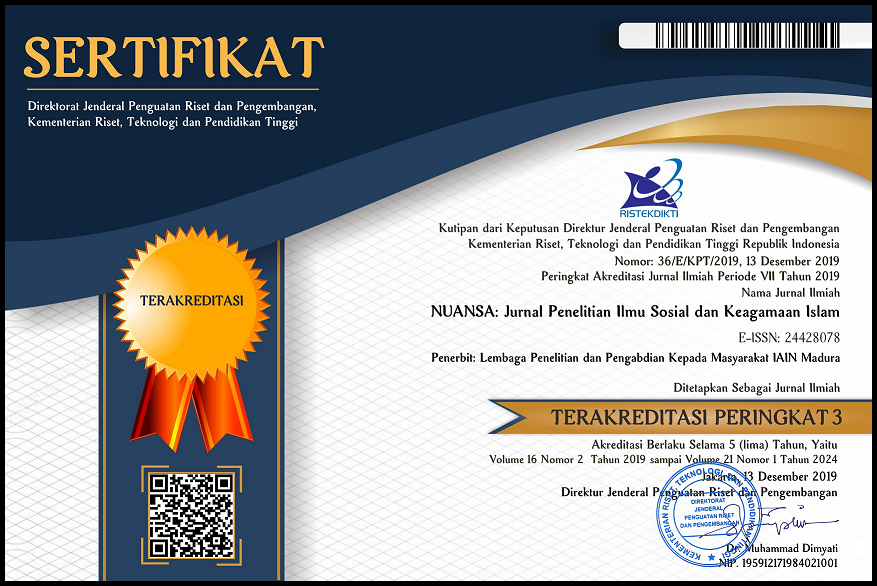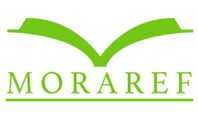The Potential of Cyber Attacks in Indonesia's Digital Economy Transformation
 Abstract views: 634
,
Abstract views: 634
,
 pdf downloads: 437
pdf downloads: 437
Abstract
In the era of the industrial revolution 4.0, many activities use the internet and computers, including economic activities. Many activities in real space are transformed into cyberspace. Currently, the world economy is transforming from conventional methods to digital. Thus, almost all countries in the world are competing to adapt to these changes, one of which is Indonesia which, based on the McKinsey report, ranks first as the country with the fastest growth in adopting the digital economy. The purpose of writing this article is to analyze the potential for cyber attacks that can affect the transformation of Indonesia's digital economy. The research method used is qualitative with data collection techniques in the form of literature studies. The results of the study found that there are several potential cyber attacks in the transformation of Indonesia's digital economy, including: Denial-of-service (DoS) and distributed denial-of-service (DDoS) attacks, Man-in-the-middle (MitM) attacks, Phishing attacks, Drive-by-download attack, Password Attack, SQL Injection Attack, Cross-site scripting (XSS) attack, Eavesdropping attack, Birthday Attack, and Malware Attack.
(Pada era revolusi industri 4.0, banyak aktivitas yang menggunakan internet dan komputer, termasuk aktivitas ekonomi. Banyak aktivitas di dunia nyata ditransformasikan ke dunia maya. Saat ini, perekonomian dunia sedang berubah dari metode konvensional ke digital. Oleh karena itu, hampir semua negara di dunia sedang bersaing untuk menyesuaikan diri dengan perubahan ini, salah satunya adalah Indonesia yang, berdasarkan laporan McKinsey, menduduki peringkat pertama sebagai negara dengan pertumbuhan tercepat dalam mengadopsi ekonomi digital. Tujuan penulisan artikel ini adalah untuk menganalisis potensi serangan cyber yang dapat mempengaruhi transformasi ekonomi digital Indonesia. Metode penelitian yang digunakan adalah kualitatif dengan teknik pengumpulan data berupa studi pustaka. Hasil penelitian menemukan bahwa ada beberapa potensi serangan cyber dalam transformasi ekonomi digital Indonesia, di antaranya: Serangan Denial-of-service (DoS) dan distributed denial-of-service (DDoS), Serangan Man-in-the-middle (MitM), Serangan Phishing, Serangan Drive-by-download, Serangan Password, Serangan SQL Injection, Serangan Cross-site scripting (XSS), Serangan Eavesdropping, Serangan Birthday, dan Serangan Malware.)
Downloads
References
Australia Indonesia Partnership for Economic Governance. 2017. The Digital Economy in Indonesia. Jakarta: Indonesia Competition Commissin.
Bailey, Kenneth D. 2007. Methods of Social Research. 4th ed. Ney York: The Free Press.
Barefoot, Kevin, Dave Curtis, William Jolliff, Jessica R Nicholson, and Robert Omohundro. 2018. “Defining and Measuring the Digital Economy.”
Bendovschi, Andreea. 2016. “Cyber-Attacks – Trends , Patterns and Security Countermeasures.” Procedia Economics and Finance 5671 (December 2015). https://doi.org/10.1016/S2212-5671(15)01077-1.
Biju, Jibi Mariam, Neethu Gopal, and Anju J Prakash. 2019. “Cyber Attacks and Its Different Types.” International Research Journal of Engineering and Technology (IRJET), 4849–52.
Bukht, Rumana, and Richard Heeks. 2018. “Defining, Conceptualising and Measuring the Digital Economy.” International Organisations Research Journal, no. September. https://doi.org/10.17323/1996-7845-2018-02-07.
Check Point Software Technologies. 2018. 5th Generation Cyber Attacks Are Here and Most Businesses Are Behind : A New Model for Assessing and Planning Security. Tel Aviv: Check Point Software Technologies Ltd.
Creswell, John W, and Cheryl N Poth. 2018. Qualitative Inquiry & Research Design; Choosing among Five Approach. 3rd ed. California: Sage Publications, Inc.
Devina, Ken, Mai Hendar Santoso, and Rifki Pratama. 2021. “The Strategy of Teaching of Preventing Violence in Cyber Media by Journalism Lecturer of UIN Syarif.” Jurnal Huriah : Jurnal Pendidikan Dan Pnelitian 2 (4): 78–85.
Google, Temasek, and Bain & Company. 2019. “E-Conomy SEA 2019 : Swip Up and To The Right Southeast Asia’s $100 Billion Internet Economy.”
Hartanto, Michael Putra, Stephanie, and Doni Purnama Alamsyah. 2021. “The Digital Economy Growth in Indonesia through E-Commerce.” International Conference on Industrial Engineering and Operations Management, 1610–15.
Indonesia Financial Services Authority. 2021. “Blue Print for Digital Transformation in Banking.” Jakarta.
Indonesian Ministry of Industry. 2018. “Indonesia’s Fourth Industrial Revolution Making Indonesia.” Jakarta.
Johnson, Thomas A. 2015. Cybersecurity : Protecying Critical Infrastructures from Cyber Attack and Cyber Warfare. London: CRC Press.
Kirishchieva, Irina, Mikhail Skorev, Oksana Mishchenko, and Tatiana Grafova. 2021. “Risks and Threats to Economic Security in the Digital Economy.” ICEMT 01028.
Mat, Bakri, Siti Darwinda Mohamed Pero, Ratnaria Wahid, and Babayo Sule. 2019. “Cybersecurity and Digital Economy in Malaysia : Trusted Law for Customer and Enterprise Protection.” International Journal of Innovative Technology an Exploring Ebgineering (IJITEE) 8 (8S3): 214–20.
McKinsey Global Institue. 2019. “Digital India : Technology to Transform a Connected Nation.”
Melati, Karina Rima, and Nur Komala Dewi. 2020. “Integrated E-Commerce Ecosystem in China and Indonesia ’ s Giant Market.” 2nd International Media Conference 2019 423 (Imc 2019): 251–69.
Miles, M.B., A.M. Huberman, and J. Saldana. 2014. Qualitative Data Analysis : A Methods Sourcebook. 3rd ed. California: Sage Publications, Inc.
Rizal, Muhamad, and Yanyan M Yani. 2016. “Cybersecurity Policy and Its Implementation in Indonesia.” Journal of ASEAN Studies 4 (1): 61–78.
Schmitt, Michael N. 2013. Talinn Manual on the International Law Applicable to Cyber Warfare. Edited by Michael N Schmitt. New York: Cambridge University Press.
Teoh, Chooi Shi, and Ahmad Kamil Mahmood. 2017. “National Cyber Security Strategies for Digital Economy.” Journal of Theoritical and Applied Information Technology 95 (23): 6510–22.
United Nations Conference on Trade and Development. 2019. Digital Economy Report 2019 : Value Creation and Capture Implications for Developing Countries. New York: United Nations Publication.
———. 2021. Digital Economy Report 2021. New York: United Nations Publications.
The journal operates an Open Access policy under a Creative Commons Attribution-NonCommercial 4.0 International License (CC-BY-NC) 
Authors who publish with this journal agree to the following terms:
- Authors retain copyright and grant the journal right of first publication with the work simultaneously licensed under a Creative Commons Attribution License that allows others to share the work with an acknowledgement of the work's authorship and initial publication in this journal.
- Authors are able to enter into separate, additional contractual arrangements for the non-exclusive distribution of the journal's published version of the work (e.g., post it to an institutional repository or publish it in a book), with an acknowledgement of its initial publication in this journal.
- Authors are permitted and encouraged to post their work online (e.g., in institutional repositories or on their website) prior to and during the submission process, as it can lead to productive exchanges, as well as earlier and greater citation of published work.





















